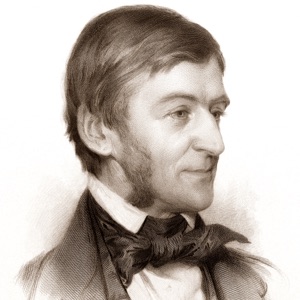
Ralph Waldo Emerson (1803 – 1882) was an American essayist, lecturer, philosopher, and poet who led the transcendentalist movement of the mid-19th century. Emerson served as a junior pastor in Boston’s Second Church, but after his first wife’s death, he began to disagree with the church’s methods, eventually leading to his resignation. Upon his return home from a tour of Europe in 1833 he began writing his first published essay, Nature. In March 1837 Emerson gave a series of lectures on the philosophy of history in Boston, which began his career as a lecturer. He eventually gave as many as 80 lectures a year, traveling across the United States. He disseminated his thoughts through dozens of published essays and more than 1,500 public lectures.

Quotes by Ralph Waldo Emerson…
Heroism works in contradiction to the voice of mankind, and in contradiction, for a time, to the voice of the great and good. Heroism is an obedience to a secret impulse of an individual’s character.
Speak the truth, and all nature and all spirits help you with unexpected furtherance.
God offers to every mind its choice between truth and repose.
Prayer as a means to effect a private end is theft and meanness. It supposes dualism in nature and consciousness. As soon as the man is at one with God he will not beg. He will then see prayer in all action.
The silence that accepts merit as the most natural thing in the world, is the highest applause.
Whilst a man seeks good ends, he is strong by the whole strength of nature… The perception of this law of laws awakens in the mind a sentiment which we call the religious sentiment, and which makes our highest happiness. Wonderful is its power to charm and to command. It is a mountain air.
That is always best which gives me to myself. The sublime is excited in me by the great stoical doctrine, “Obey thyself.” That which shows God in me, fortifies me.
The great make us feel, first of all, the indifference of circumstances. They call into activity the higher perceptions, and subdue the low habits of comfort and luxury; but the higher perceptions find their objects everywhere; only the low habits need palaces and banquets.
Great men are they who see that spiritual is stronger than any material force, that thoughts rule the world.
Our moods do not believe in each other.
